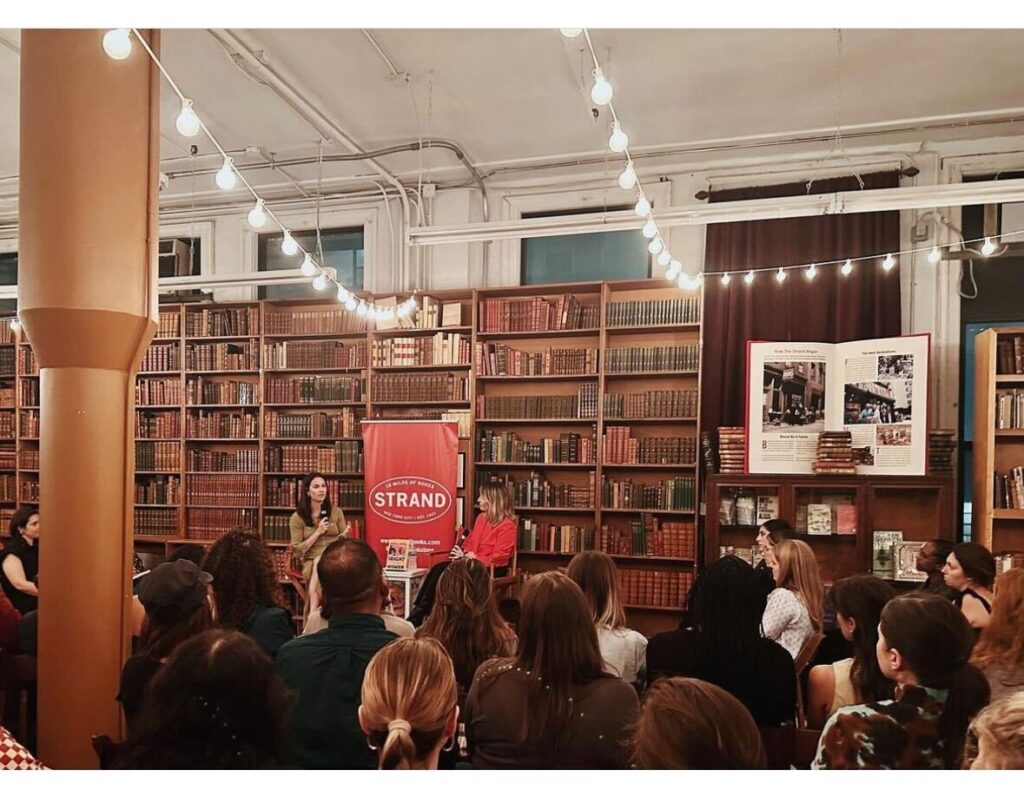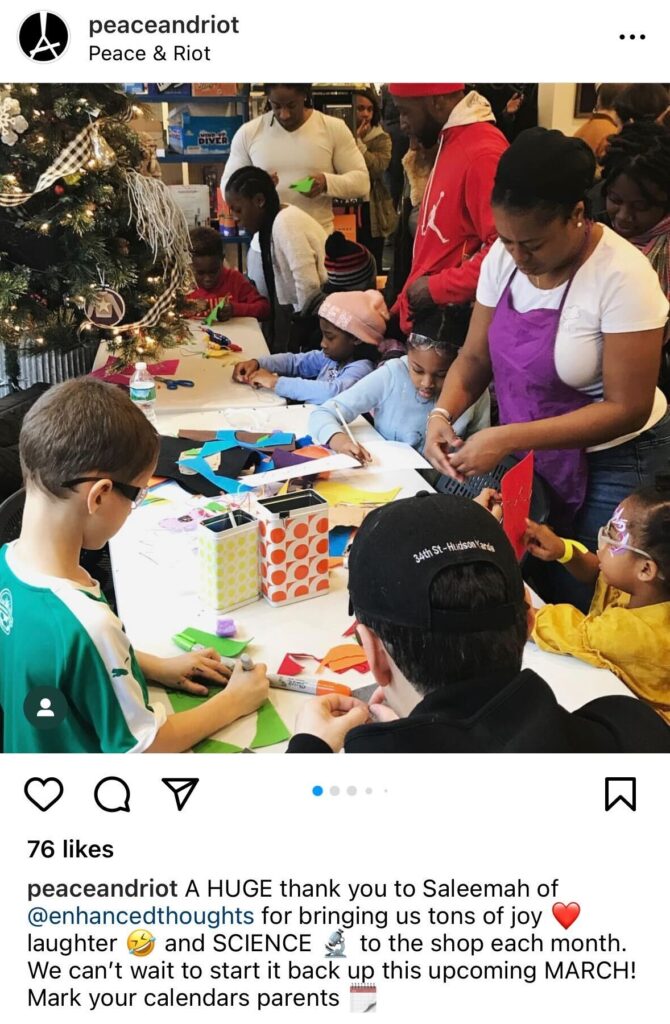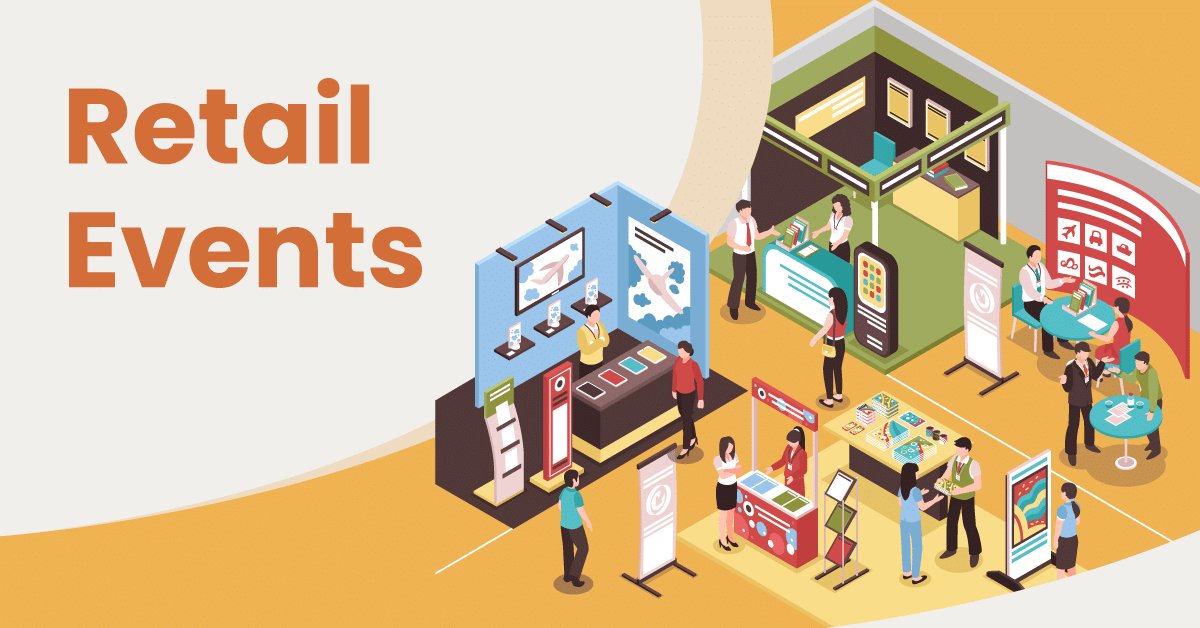
In the current era of online shopping and digital marketing, retail stores must engage their customers with captivating brick-and-mortar experiences. In one survey, 73% of respondents said customer experience was the most critical factor in purchasing decisions. But elevating your customer experience is easier said than done.
One great way to offer great customer experiences is through retail events. Retail events allow retailers to connect with customers, increase brand exposure, and drive sales. When executed effectively, these events can yield significant benefits, including enhanced customer loyalty, market insights, and revenue growth.
This blog post will explore why retail events are essential, best practices for making the most of these occasions, and examples you can try in your store.
Why Are Retail Events Important?
Retail events offer so much to a brick-and-mortar shop. They breathe life into your store and encourage new customers to check out what you have to offer. Below we’ll go a bit more in-depth into some of the benefits of hosting an event at your store:
1. Customer Engagement and Experience
One of the primary reasons retail events are important is their ability to foster meaningful customer engagement and enhance the overall shopping experience. Unlike online shopping, where interactions are mostly transactional, retail events provide a physical space for customers to interact.
Shoppers can handle products, ask questions, and receive personalized attention from knowledgeable staff. This direct engagement helps create a memorable experience that customers associate positively with the store or brand.
2. Brand Exposure and Awareness
Retail events offer a unique opportunity for retailers to increase brand awareness and exposure. Participating in and hosting events helps businesses reach a broader audience and introduce their products to new customers who may not have encountered them otherwise.
Effective branding and marketing during these events will leave a lasting impression on attendees.
“Getting people in the store can be hard! We try to throw some kind of party at least twice a year. We’ve had DJs, fashion shows, fundraisers. We try to respond to community feedback and vibes. So far the events have been great and have certainly introduced the shop to new customers!”
Cheryl W. – The Vintage Vault
3. Sales and Revenue Boost
The ultimate goal of any retail event is to drive sales and boost revenue. These events often feature special promotions, discounts, or exclusive products, incentivizing customers to make a purchase.
Additionally, the sense of urgency created by the event’s limited duration encourages impulse buying, further increasing sales.

4. Customer Data and Market Insights
Retail events provide retailers with valuable customer data and insights through attendee registrations, surveys, and interactions during the event. Businesses can gather feedback and information about customer preferences and buying behavior.
This data can be used to refine marketing strategies and product offerings. After all, segmented outreach is always more effective than general email blasts.
Through customer feedback and observations, businesses can also use these events to gain insights into market trends and competitors’ offerings. This information further informs product development and marketing strategies.
5. Building Stronger Relationships
Retail events play a pivotal role in building customer loyalty. Customers who have a positive experience at an event are more likely to become loyal patrons of the brand. After the event, loyalty programs, exclusive offers, and follow-up communications will solidify this relationship.
Furthermore, retail events are not just about customers; they also provide a chance to strengthen relationships with suppliers, partners, and other stakeholders in the industry. Networking leads to valuable collaborations and opportunities for growth.
6. Clearing Inventory
Retailers often use events to clear out excess inventory or promote seasonal items. Offering discounts and promotions during events helps businesses reduce carrying costs and make way for new products.
Best Practices for Retail Events
Strategizing is crucial for hosting retail events. To design effective gatherings at your shop, consider the following:
1. Define Clear Objectives
Before planning a retail event, it’s crucial to define clear objectives.
Determine what you want to achieve. Are you looking to boost sales? Increase brand awareness? Launch a new product? Your objectives will guide all aspects of event planning, execution, and measuring results.
2. Know Your Audience
An idea for a store party may be significant. But it will only be effective if planned with your customers in mind.
“By hosting a renowned brewmaster, our shop became the epicenter of craft beer culture in our small town. Sharing the artistry behind making different brews not only delighted our customers but also helped us gain a ton of traction on social media. As our followers grew, so did our foot traffic and sales.”
Marc M. – Upstate Ales
Understanding your target audience is essential. Tailor the event to consumer preferences and interests. Consider age, demographics, and buying behavior to create a relevant and engaging experience.
3. Create a Memorable Experience
Focus on designing a memorable experience for attendees. To keep guests engaged, incorporate interactive elements, such as product demonstrations, tastings, workshops, or entertainment.
Ensure that the event environment reflects your brand’s identity and values. Being original, genuine, and incorporating multiple levels of sensory engagement should be a clear goal.
4. Effective Marketing and Promotion
Promote your event effectively to maximize attendance. Utilize a mix of online and offline marketing channels. These should include traditional advertising, social media, and email marketing.
Highlight the unique aspects of your event that set it apart from everyday shopping. Try to use copy and graphics that entice the viewer while maintaining your brand voice.
5. Measure Results and Collect Feedback
After the event, measure its success by analyzing key performance indicators (KPIs) like sales, customer feedback, and social media engagement. Use these insights to refine your strategies for future events.
Utilizing POS analytics and sales reports gives you a clear picture of how your event affected your revenue and foot traffic. Collect feedback from both customers and your team to identify areas for improvement. Encourage open communication and continuously use this input to refine your event planning processes.
Retail Event Examples
Here are some realistic recommendations for events you can throw at your store. The style of get-together you choose will depend on your vertical, store layout, and sales and marketing objectives.
1. “Product Launch Showcase”
Objective: To generate excitement and anticipation for a new product launch while showcasing the brand’s innovation and uniqueness.
Event Details:
- Build anticipation through teaser campaigns on social media and email newsletters leading up to the event.
- Create an immersive experience with interactive product demonstrations, allowing attendees to experience the new product firsthand.
- Offer exclusive pre-order or purchase incentives for attendees, such as limited-time discounts or bundled packages.
- Provide refreshments and giveaways to keep attendees engaged and entertained.
- Collect attendee information for future marketing efforts and feedback on the new product.
Benefits:
- Generates excitement and buzz around the brand and its new product
- Provides an opportunity for direct customer interaction and feedback
- Drives immediate sales of the new product
- Increases brand visibility through attendee social media coverage
2. “Customer Appreciation Festival”
Objective: To show gratitude to loyal customers, strengthen customer relationships, and encourage repeat business.
Event Details:
- Host the event at the retail location.
- Offer special discounts, promotions, or early access to sale items exclusively for loyal customers.
- Organize fun activities for attendees, such as games, workshops, or live entertainment.
- Create a sense of community by inviting customers to share their experiences with the brand or products.
- Provide complimentary food, beverages, and giveaways as tokens of appreciation.
- Launch a referral program that rewards customers for bringing friends or family to the event. This is one of many ways to do referral marketing in retail.
- Collect customer feedback and suggestions for improvements.
Benefits:
- Fosters customer loyalty and encourages repeat purchases
- Creates a positive and memorable experience
- Generates word-of-mouth marketing through satisfied customers
- Strengthens the sense of community and brand/store affinity

3. “Seasonal Pop-Up Bazaar”
Objective: To capitalize on seasonal trends and create a sense of urgency for holiday or seasonal shopping.
Event Details:
Set up a temporary pop-up store in a high-traffic location, aligning with the current season (e.g., holiday-themed for Christmas or beach-themed for summer).
- Collaborate with local artisans, vendors, or complementary brands to offer diverse products and experiences.
- Create a festive atmosphere with seasonal decorations, music, and interactive displays.
- Do some holiday inventory planning to determine the best items to offer.
- Offer limited-time, exclusive product releases or bundles that are only available during the event.
- Promote the event through social media and local press.
Benefits:
- Capitalizes on seasonal shopping trends and holiday spirit
- Attracts foot traffic and new customers to the retail location
- Encourages cross-promotion and collaboration with other local vendors
- Creates a sense of urgency around the shopping season
KORONA POS is very user-friendly. You can customize the interface to conform to your business needs. Customer Service is in the United States, always accessible, and always awesome. We love that we can fit it into our scale of business and grow with it.
-Darlene P.
Measure Your Effectiveness with Point of Sale Analytics
Measuring your ROI is essential when analyzing the effectiveness of a retail event and planning for future ones.
A modern point of sale system measures the effectiveness of a retail event by analyzing the increase in revenue during the event period compared to regular days. KORONA POS tracks specific products sold during and immediately after the event, indicating which items were popular among customers. Additionally, the system monitors the sales volume, average transaction value, and foot traffic, providing insights into customer buying patterns.
Click the button below to schedule a demo with our team to learn more about KORONA POS and how the solution can help your business improve and grow.
FAQs: Retail Events
A retail event is a specific occasion or promotion a retailer organizes to attract customers and boost sales. These events might include special sales, product launches, holiday-themed promotions, or exclusive discounts available for a limited time. Retail events are designed to create a sense of urgency and excitement among consumers, encouraging them to purchase and engage with the brand.
In-store events refer to promotional activities or occasions in a physical retail location. These events enhance the shopping experience and engage customers directly within the store environment. Examples of in-store events include product demonstrations, workshops, exclusive launches, or interactive experiences to attract foot traffic, increase sales, and foster a deeper connection between the customers and the brand.
In-store events offer several benefits to both retailers and customers. Firstly, they create a unique and immersive shopping experience, enhancing customer satisfaction and loyalty. Secondly, these events can drive foot traffic, increase sales, and promote specific products or services. Lastly, in-store events allow retailers to gather valuable customer feedback, strengthen brand awareness, and establish a personal connection with shoppers, fostering long-term relationships and repeat business.
Effective marketing and communication strategies are crucial to attract customers to an event. Utilizing social media platforms, email newsletters, and targeted advertising creates buzz and generates interest. Offering exclusive discounts, freebies, or unique experiences during the event incentivizes attendance while engaging visuals and compelling storytelling help capture attention and pique curiosity. Finally, collaborating with complementary businesses can extend the event’s reach and attract a broader audience.












